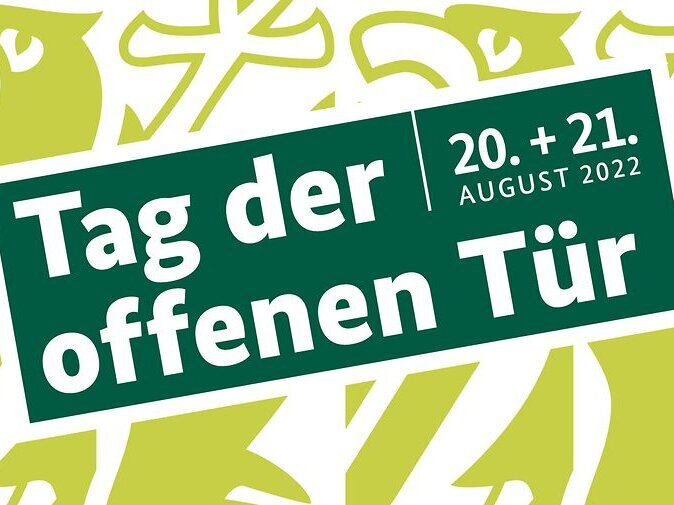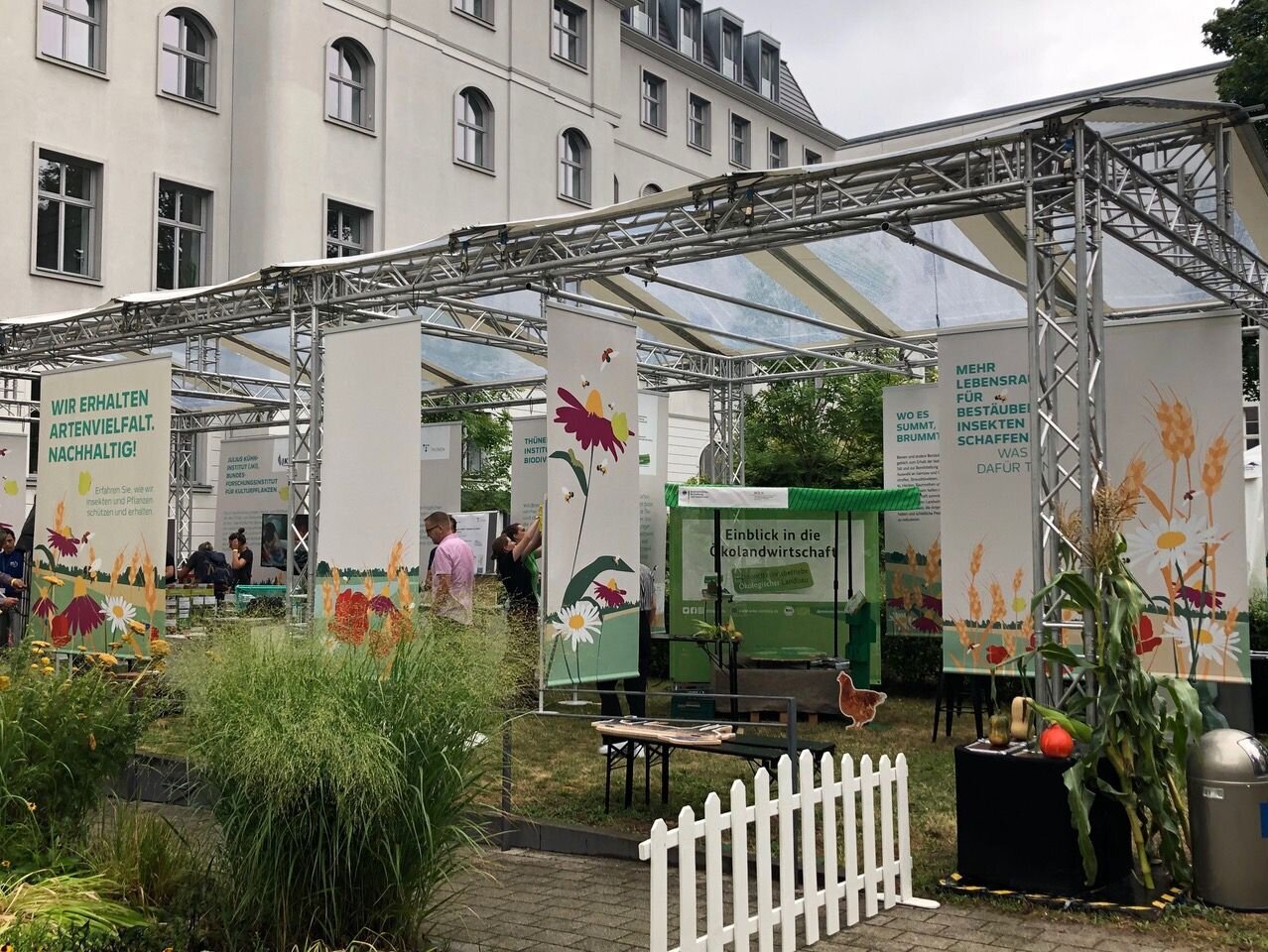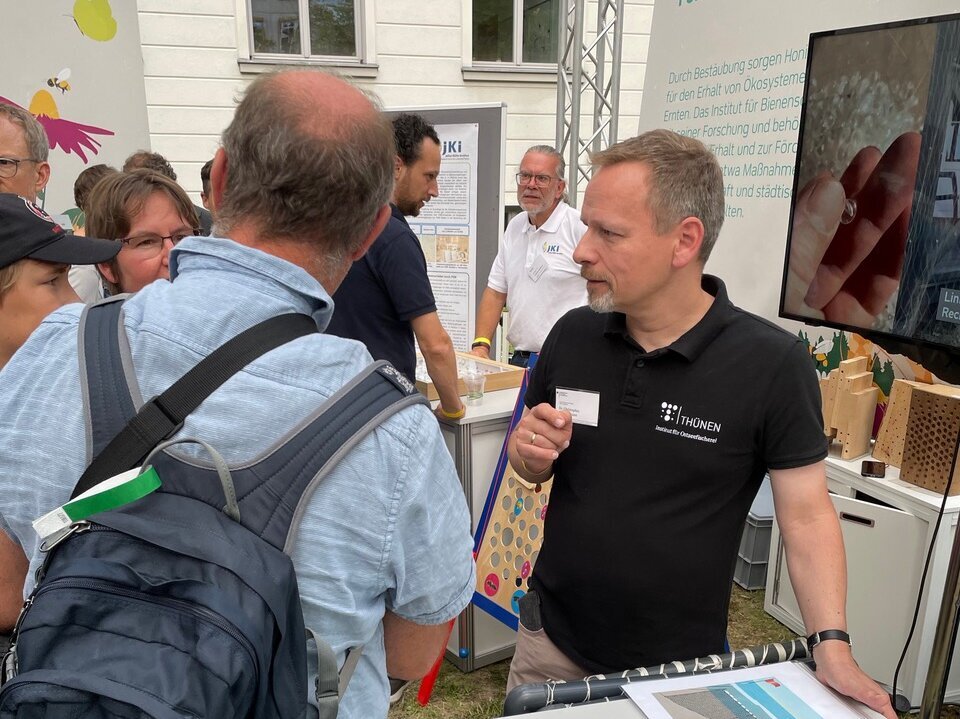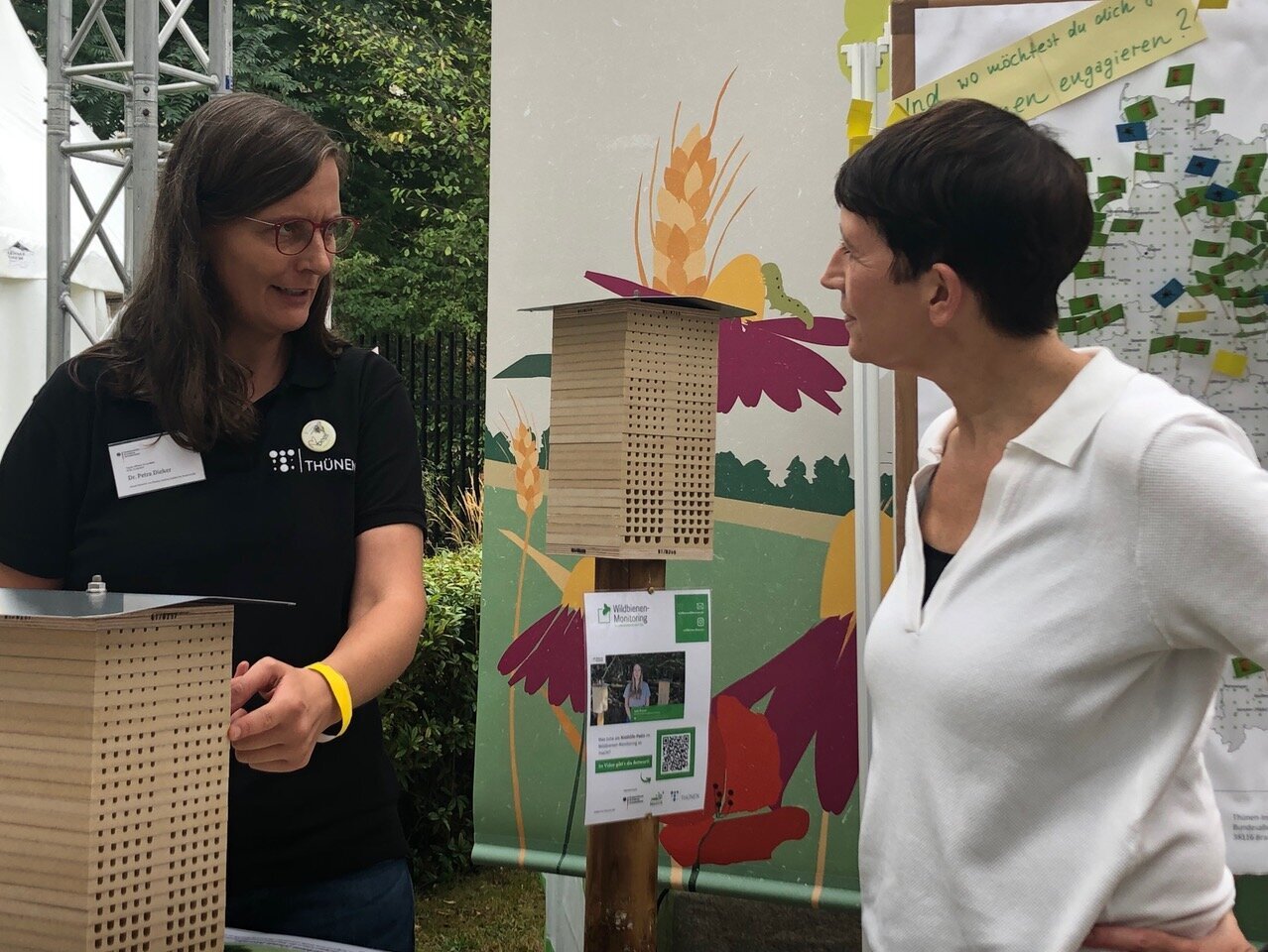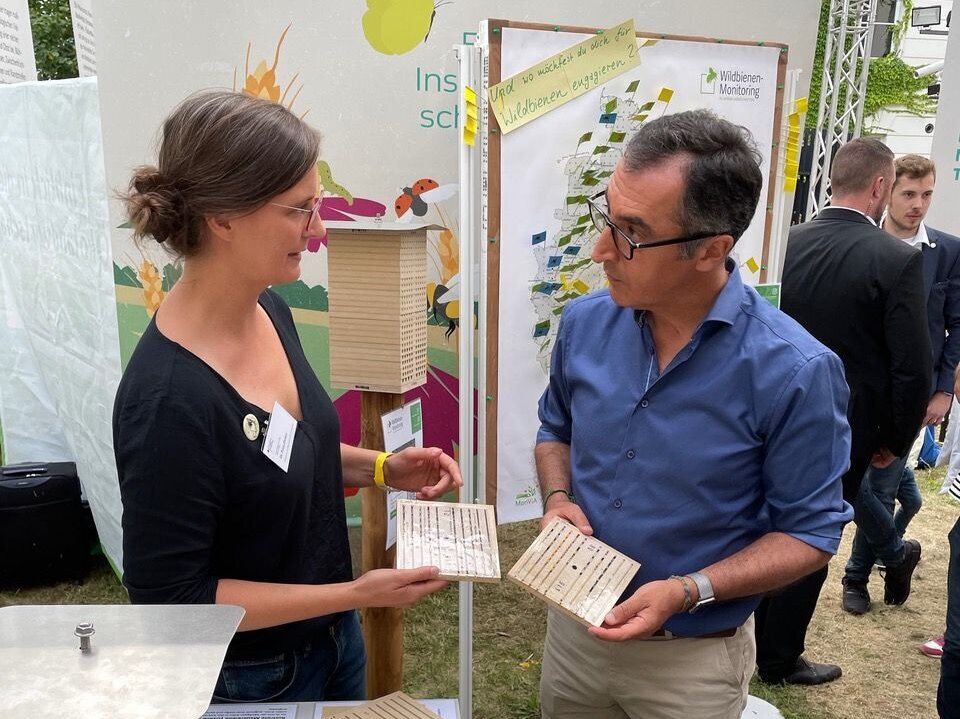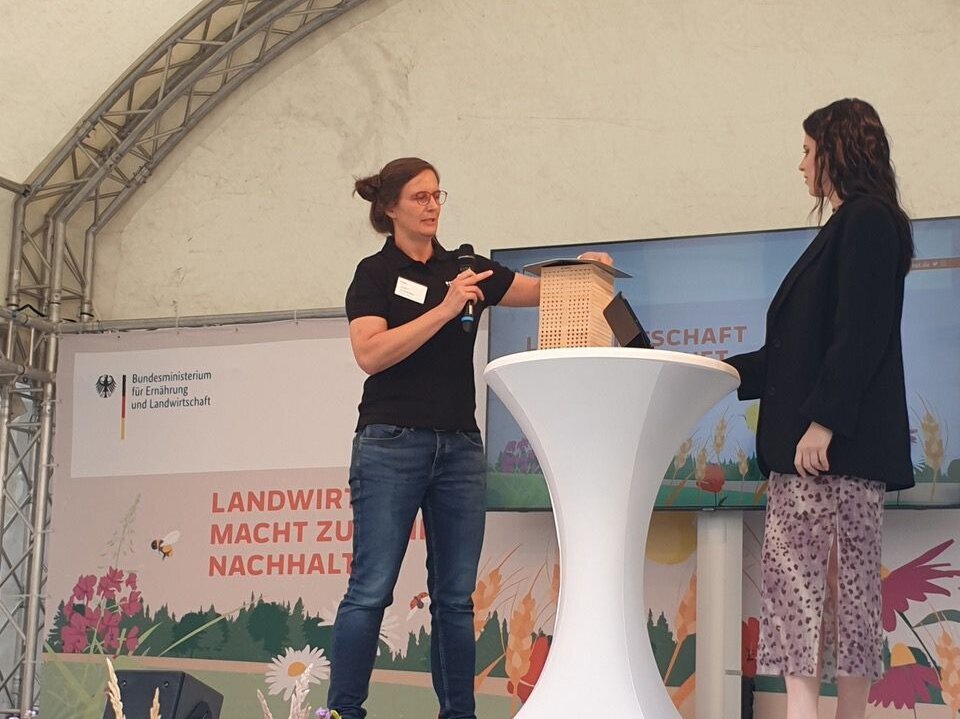After a two-year break due to Corona, the Federal Chancellery and the Federal Ministries in Berlin opened their doors to the public again. So did the Federal Ministry of Food and Agriculture (BMEL): Under the motto "Agriculture makes the future. Sustainable!", a diverse programme on the topics of climate protection, animal welfare, biodiversity and sustainable nutrition awaited visitors on 20/21 August 2022.
On these days, the Thünen Institute provided information on two different, but both very exciting research topics: It was about wild bees in the agricultural landscape and about sustainable coastal fishing in the Baltic Sea.
Wild bees: Together with partners from the joint project MonViA, the Thünen Institute for Biodiversity in Braunschweig gave an insight into the nationwide wild bee monitoring; it showed how the diversity and density of different wild bee species in the agricultural landscape can be recorded with the help of nesting aids developed at the Thünen Institute - a research approach that explicitly relies on the committed assistance of interested citizens (citizen science): The researchers explained how wild bee monitoring serves as policy advice and how volunteers can provide important data. If you want to get active yourself, you can still take part in the Photo Bumblebee Challenge via the "ObsIdentify" app, which runs until 28 August.
- To the Bumblebee Challenge website: https://wildbienen.thuenen.de/mitmachen/hummel-challenge-2022/
- To the joint project MonViA: https://www.agrarmonitoring-monvia.de/
- To the wild bee website: https://wildbienen.thuenen.de/
Coastal fishing: Fishing in the Baltic Sea is in the headlines mainly because it has lost its "bread and butter" fish, cod and herring. Scientists from the Thünen Institute for Baltic Sea Fisheries in Rostock explained the reasons for this. They showed how unwanted bycatch can be minimised and what the fishing gear of the future will look like. It is not only the fishing gear that has to be made fit for the future - the coastal fishing vessels as well. Above all, there is the question: How are the fish stocks that end up on our plates as edible fish doing?
- Web dossier on bycatch reduction: https://www.thuenen.de/de/themenfelder/fischerei/beifang-und-andere-nebenwirkungen
- Fish stocks online: https://www.fischbestaende-online.de/
Many hundreds of visitors were enthusiastic, asked questions and discussed with the researchers. The weather also played along, so it was an all-round beautiful and intensive weekend. And so we are looking forward to next year and hope that there will be another invitation for a state visit!

